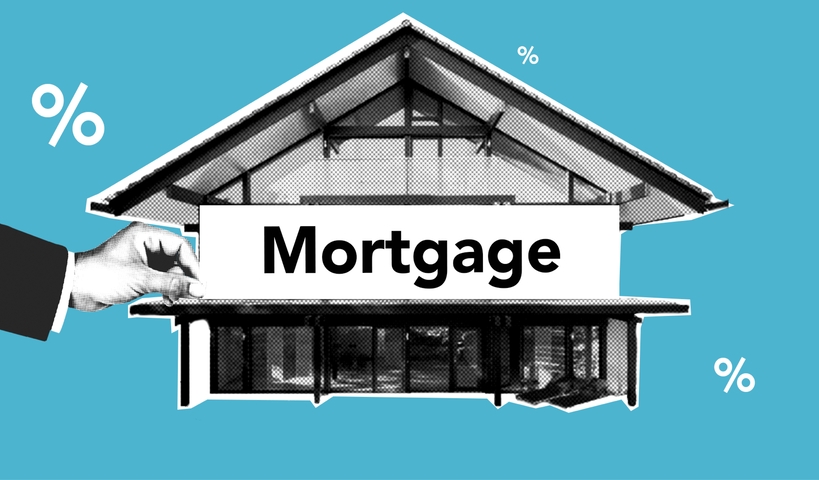For most people, buying a home is the most significant financial commitment they’ll ever make. Along with the initial cost of your home comes plenty of other expenses like insurance, maintenance, and utilities. To do so, you’ll need to take out a loan to cover it all.
The interest rate of your home loan determines how much you pay back each month, and it is one of the most important factors when choosing a mortgage. The interest rate on your home loan helps determine how much money you spend over the life of that loan. This article will explain everything you need to know about Australian home loan interest rates today and what they could be tomorrow.
What is the home loan rate in Australia Now?
As of May 2022, the average variable mortgage interest rate is approximately 3.33%, and the average fixed mortgage interest rate is approximately 4.06%. The home loan rate in Australia has been below 4% since April 2018, which was the first time this had happened since February 2001.
The Reserve Bank of Australia (RBA) sets the rates on home loans and other types of loans in Australia. The RBA use these rates as their primary tool to manage inflation and economic growth within Australia. If inflation is too high, they will increase interest rates to encourage people to spend less money on goods and services, decreasing demand for products and thus lowering inflation levels over time. If inflation is too low, they will reduce interest rates to encourage people to borrow more money and spend more money on goods and services, increasing demand for products, thus increasing inflation levels over time.
How does the home loan rate in Australia compare with global rates?
The home loan rate in Australia is currently sitting at around 4.0%, which is a lot lower than it used to be in the past. For example, if you compare this with the rate in the UK, which is around 6%, or even in the US, where it’s about 5%, you can see that Australian rates are relatively low.
This is because the Australian economy is doing so well, and there’s a lot of demand for housing. This has pushed up prices, meaning people can afford to pay more on their mortgages. There are also government programs that help people get onto the property ladder by providing incentives. The First homeowner Grant and the Help to Buy Scheme are two examples.
How to get the best home loan interest rates
If you’re looking for a home loan, the interest rate you end up with can make a big difference in your monthly payments and overall home ownership experience. But with so many types of loans out there, how do you know which one is right for you? Here’s what you need to know about finding the best possible rates on your next mortgage:
Improve your credit score
The higher your credit score, the lower your interest rate is likely to be. If you have bad credit or no credit history, consider taking steps to build up your credit score before applying for a mortgage. A good credit score can help you qualify for better rates and save thousands of dollars over the life of your loan.
Save for a down payment.
The larger the down payment, the fewer risks lenders, perceive in lending to you, which translates into lower interest rates on mortgage loans. This is particularly true if you’re buying a home with someone with excellent credit or assets (such as stocks or mutual funds) that could serve as collateral for a loan.
Gather Info on Your Income and Employment History
Most lenders require proof of income and employment history before applying for a loan. If you’re self-employed or work for an employer that doesn’t report your earnings to the IRS, you’ll need to gather pay stubs from the past two years. You can also get a letter from your employer confirming your income, and you’ll also provide information about rental income.
Know Your Debt-to-income Ratio (DTI)
The DTI ratio measures how much debt you have about how much money you earn. For example, if your mortgage payment plus all other monthly expenses totals 40 percent of your gross monthly income (before taxes), your DTI ratio is 40 percent. Most lenders use a maximum DTI ratio of 43 percent when determining whether they will lend money to borrowers with less than perfect credit scores.
Comparison-shop among multiple lenders
An excellent way to start your search is to compare rates at three or four lenders. The lender with the best rate may not be the one that offers you the lowest interest rate but rather the one that gives you the best deal overall.
How to work with a mortgage broker
There are many reasons you may decide to work with a mortgage broker. Here are some of the benefits:
Mortgage brokers can search multiple lenders at once to find the best mortgage for your needs, saving you time and money. This allows them to shop around for the best rates and terms on your behalf.
Mortgage brokers can help you understand all of your options to make the right choice for your unique situation.
Mortgage brokers have access to special rates that are not available to the general public.
Mortgage brokers will help make sure all of your paperwork is filled out correctly and on time, so you don’t miss any deadlines or incur unnecessary fees from missing paperwork deadlines.
What factors affect home loan rates in Australia?
Home loan rates vary based on several factors. These include:
-
- Credit scores: A borrower with a low credit score may have to pay more for a loan than someone with an excellent credit score.
- Home location: If you live in an area that has been affected by natural disasters or other catastrophic events, lenders may be less likely to lend money to borrowers in this area because they think it will be difficult for them to repay their loans if there are further problems in the future.
- Home price and loan amount: Lenders typically charge higher interest rates on larger loans than smaller ones because they assume it will take longer for borrowers with bigger loans to pay off their debts.
- Down payment: Lenders also charge higher interest rates on homes with no down payment or low down payments because they assume these borrowers will be less likely to repay their debts than those who have made Large down payments on their homes.
- Loan term: Longer loan terms generally mean lower monthly payments, but higher interest charges over time.
Start with us!
With over 10 years experience, our proven Mortgage broker can find the right deal for you. Mortgages are a lifelong expense and investment in your future. Contact us today and let us research and calculate the best deal for you before making big financial decisions.


